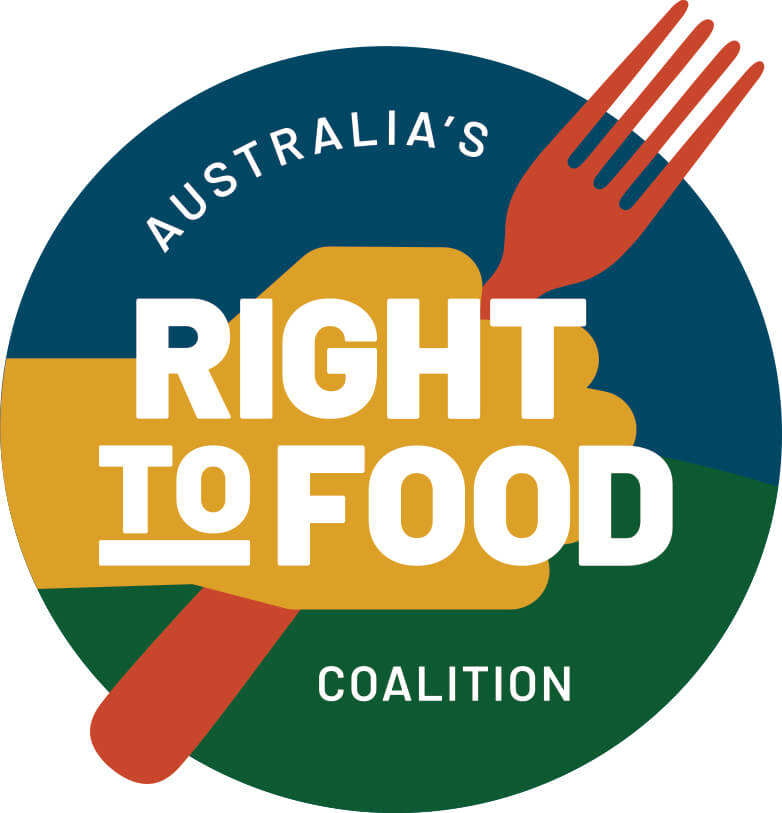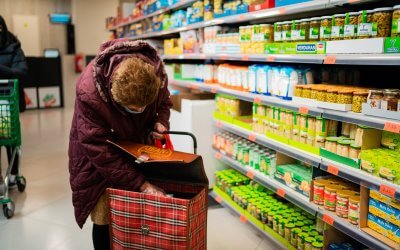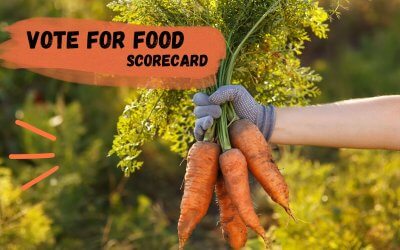This week, between Sunday 11 October to Saturday 17 October 2020, marks Anti-Poverty Week in Australia. It also coincides with World Food Day on Friday 16 October 2020.
The theme of Anti-Poverty Week this year is “Poverty exists. Poverty hurts us all. We can all do something about it”. As we grapple with the COVID-19 pandemic, we are taking this opportunity to look at the impact of poverty on food insecurity and what we can do about it.
The link between poverty and food insecurity
The link between poverty (not having enough resources to meet your basic living needs) and food insecurity (the inability to access food for a healthy and active life) is well documented in Australia. People on low or uncertain incomes are more likely to experience food insecurity as they struggle to keep up with the cost of living and healthy food becomes a discretionary budget item. The pre COVID-19 Foodbank Hunger Report 2019 estimated that up to five million (21%) Australians had been in a situation where they had run out of food and had been unable to buy any more in the last year. The reasons for this are tied to poverty, with unexpected bills or housing payments often the immediate reason why an individual goes hungry. The newly released 2020 Foodbank Hunger Report shows that the COVID-19 pandemic has led to a doubling in emergency food relief demand, from 15% in 2019 to 31% in 2020.
Having access to healthy and affordable food is a basic human right, and advocating to make this a reality is a key role of Australia’s Right to Food Coalition. A recent ACOSS survey showed that the increase in income support payments in response to the coronavirus has improved the ability of many recipients to eat more regularly and afford fresh fruit and vegetables. A subsequent ACOSS survey revealed that 80% of respondents said that when the coronavirus supplement was reduced in September 2020, they would have to skip meals and reduce how much fresh fruit and vegetables they bought. The positive food security outcomes observed since payments increased is a good reason to raise the rate of these payments permanently, with evidence now showing how this has helped to put sufficient and nutritious food on the table. This research also lends further weight to the argument that in high-income countries like Australia, it is typically not a household’s lack of financial or food education that puts them most at risk of experiencing food insecurity, but a lack of means to purchase enough, nutritionally adequate food.
Impact of COVID-19 on poverty and food insecurity in NSW and Victoria
To better understand the impacts COVID-19 is having on poverty and food insecurity, Australia’s Right to Food Coalition has published a brief report identifying the current challenges and opportunities faced by four community food organisations working across the Greater Sydney and Illawarra regions: OzHarvest, Food Fairness Illawarra, Rozelle Neighbourhood Centre, and Community Greening. The report found that it has not been ‘business as usual’ for the community food sector since the start of the pandemic. Common, locally-reported consequences of COVID-19 within these regions have included increased demand for food relief among existing and newly emerging groups of clients, the forced suspension of volunteer activities to comply with government COVID-Safe guidelines, and disruption to local food supply chains.
Similarly, researchers from Deakin University surveyed emergency food aid providers in Victoria to explore their response and capacity during the initial phase of the COVID-19 pandemic (May-June 2020) and reported widespread changes to services. A presentation of these results found that of 101 Victorian emergency food aid providers that responded to their survey, around 1 in 2 were providing services to more people compared to the beginning of the pandemic. More than 40% of agencies experienced an increase in the number of people seeking food, including more international students, people ineligible for government support and/or on temporary visas, as well as parents requesting food for children while many schools were closed. Loss of volunteer staff was also reported by more than 3 in 4 agencies, despite an increased demand for aid. Some agencies extended their service offerings (41%) or their hours of operation to meet this demand (16%), though numerous stressors also forced other agencies to reduce their hours of operation (38%), or even to temporarily close or suspend their services (31%).
VicHealth’s recent survey of 2000 Victorians during the initial coronavirus lockdown (March-May 2020) also highlighted some concerning trends regarding food access and food insecurity. The survey found that around one in four (23%) respondents reported relying on a restricted range of low-cost unhealthy food due to running out of money to buy food. This reliance was significantly more commonly reported among younger Victorians (44% of those aged 18-24 years), Aboriginal and Torres Strait Islander people (54%) and those living in bushfire affected areas (45%). The survey also found that when compared to before the first lockdown, more respondents were running out of food and unable to afford more (from 6% in February 2020 to 7% in first lockdown) and an increased proportion of people worrying about having enough money to buy food (from 9% to 17%), and skipping or going without meals (from 7% to 10%).
Overall, research findings indicate that COVID-19 has worsened food insecurity for many people and communities who were already experiencing food security challenges, while also becoming a new reality for people who have previously never found themselves in a vulnerable socioeconomic position. Not surprisingly, emergency food aid providers have described concerns about their ability to meet demand for their services once income support payments return to a lower rate and volunteer workforces and donations continue to be affected for the foreseeable future. The Coalition’s report in particular suggests that organisations continue to develop their collective resilience by centralising information sharing and coordinating services within their networks to benefit the communities they serve.
Reducing the stigma of accessing emergency food relief
For most of this year, RTF Coalition members have been reflecting on the impact of COVID-19 pandemic on emergency food relief. While many organisations have reported an increase in demand for emergency food relief, we suspect there may be many more people in difficulty who do not seek help through perceived stigma and shame of accessing this form of relief, especially for people who have never needed this kind of support before.
People using food services have often described the experience of accessing emergency food relief as humiliating or embarrassing. A number of ways have been suggested to reduce this stigma and restore dignity to recipients including:
- Providing a space that is dignified and open to everyone. This can include relaxing harsh assessment processes or making financial counselling voluntary, never mandatory. It also includes ensuring all Aboriginal and Torres Strait Islander peoples, LGBTQIA+ community members, refugees, culturally and linguistically diverse communities and anyone who may consider themselves ‘marginalised’, feel welcomed, safe, heard and respected.
- Ensuring there are a range of foods on offer that adequately meet a range of cultural and religious needs (e.g. Halal, Kosher), medical and dietary needs (e.g. gluten-free), and ethical considerations (e.g. vegan or vegetarian).
- Giving people the ability to choose, even if only some of their food (for example, self-serve bread on the rack).
- Where appropriate, giving participants the ability to give back, like providing volunteering opportunities at the service, to improve camaraderie with others who have a shared experience of food insecurity. Equipping people with the support and opportunities to add their voices and lived experience to advocacy efforts is another empowering example.
- Considering alternative models such as social supermarkets or food cooperatives.
- From a food safety perspective, it is important all packaged foods with a use-by date are clearly labelled, and that any packaged foods offered close-to or past their best-before date, comply with Australian food safety standards and regulations. It is important all food relief donors have basic knowledge about food safety, personal hygiene, food handling and storage practices, and additionally comply with all government COVID-Safe measures.
- Carefully considering the needs of people with various cooking and food literacy knowledge and skills, or who lack essential or appropriate kitchen utilities, such as refrigeration and freezing, gas and electricity.
- Offering free community cooking classes or online resources that provide people with the confidence and skills to safely prepare and cook simple, nourishing and tasty budget-friendly meals for individuals and families, such as Nutrition Australia’s Cook Well, Eat Well or OzHarvest’s NEST resources. Value can be added by employing trained nutritionists, dietitians, community nurses, counsellors, disability or social workers, to be on-hand to provide extra care and assistance where needed.
There are also some great international resources available for emergency food relief providers to help them deliver respectful services, including The Dignity in Practice Project in Scotland.
Coalition food mapping resources
A range of food maps and directories have been developed in Australia to help individuals, frontline workers and practitioners locate community food initiatives, including emergency food relief. The RTF Coalition has put together a list of publicly available food mapping resources, which is now available on our website.
What has the pandemic taught us?
Despite the important work that many providers do, the COVID-19 pandemic continues to highlight that emergency food relief can only provide short term support to the food insecure. Structural solutions, such as the increase in income support payments, and a real commitment by government at all levels to ensuring the right to food, will be needed to ensure ongoing food security for all Australians. The recent awarding of the World Food Programme with the Nobel Peace Prize highlights that while combating hunger is a global priority through the UN Sustainable Development Goals, there is also important work that needs to occur on a more localised level to fight both food insecurity and poverty especially during times of crisis.
About the authors
Amy, Chantelle, Vivien and Elisha are organising committee members from the NSW and Victorian RTF Organising Committees.
Amy Lawton is a social researcher. She has undertaken research on community food programs, urban food strategies and mapping, community gardens and more recently, peri-urban agriculture in the Western Sydney region. Amy holds a Bachelor of Applied Science (Environmental Health) from Western Sydney University, a Master of Social Change and Development from University of Newcastle Australia and a Diploma of Business (Governance) through the Institute of Community Directors Australia.
Vivien Yii is a public health nutritionist. She manages a national, nutrition-focused food relief program and has undertaken research on population-based approaches to household food insecurity in Australia, with a particular focus on local government policy and practice. Vivien is a WEF Global Shaper (Melbourne Hub) and previously co-led the Melbourne chapter of Youth Food Movement Australia. She holds a Bachelor of Nutrition Science (Honours) from Monash University.
Elisha West is a nutritionist and educator. She manages a national public health nutrition program and has undertaken research on food rescue operations, the food relief sector, and the role of food literacy interventions on food security, dietary behaviours, and nutrition knowledge. Elisha holds a Bachelor of Arts (Hons) in Health Education and Sociology from Flinders University, a Graduate Diploma in Nutrition Science, and will be completing her Master of Nutrition in October 2020 from Deakin University.
Twitter: @ElishaW95906197
Chantelle Vella is a community and public health nutritionist. She currently works in the Aboriginal and Torres Strait Islander health space, and has worked in the non-for-profit health sector for many years. Chantelle is a current representative of the Public Health Association of Australia’s Students and Young Professionals in Public Health committee. Chantelle holds a Bachelor of Science (Nutrition) from the University of Wollongong, and a Master of Health Communication from the University of Sydney.
Twitter: @HealthDisrupter





